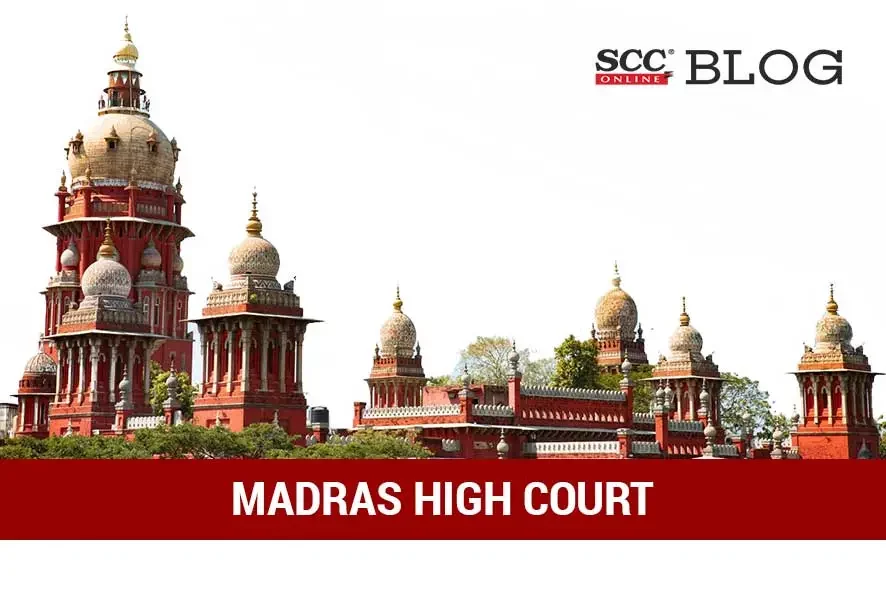Madras High Court: In a second appeal filed against the judgment and decree passed by the Additional District and Sessions Court, wherein the Court modified the judgment and decree passed by the Sub Court, Krishnan Ramasamy, J. has held that as the wife purchased immovable property from the stridhan gifted by her father at the time of her marriage, she alone is the full owner of the property and not a limited owner. Merely the husband helped her to redeem the jewels, would in no way, create a right in his favour over the property.
Further, the movable properties are gifts which the husband presented to his wife, thus he is not entitled to claim it back, though he purchased them out of his own earnings.
In the case at hand, the husband was working in Saudi Arabia and the wife continued to live in India with their children and was entrusted with the funds of the husband which had swollen to huge proportions. During his visit to India, he brought various articles of value, jewellery and cash. The wife had no income of her own. She was only managing and administering the affairs of the husband prudently and operating the accounts and thus was acting in effect as the agent in a fiduciary capacity. While managing the affairs of the husband she purchased properties on his behalf.
The Trial Court decreed the suit in favour of husband stating that all the suit properties belonged to the husband, and he is the true owner and entitled to his title to the suit properties. Whereas the lower appellate Court partly allowed the appeal and thereby the judgment and decree of the Trial Court has been set aside regarding the suit properties and confirmed in respect of remaining properties. Hence, the husband filed the present appeal.
The Court said that the wife being a home maker, though she did not make any direct financial contribution, she played a vital role in managing the household chores by looking after the children, cooking, cleaning and managing day-to-day affairs of the family without giving any inconvenience to her husband abroad. Moreover, she sacrificed her dreams and spent her entire life towards her family and children.
The Court also said that a wife, being a home maker performs multi tasks. A wife makes the home as a comfortable environment and her contribution towards the family, and certainly it is not a valueless job, but it is a job doing for 24 hours without holidays, which cannot be less equated with that of the job of an earning husband who works only for 8 hours.
While considering the contribution which wives make towards acquisition of the family assets by performing their domestic chores, thereby releasing their husbands for gainful employment, the Court said that the spouse who looks after the home and cares for family for decades, entitled to a share in the property.
The Court said that in the present case, if the wife was not there, certainly, the husband would not have gone abroad and earned all the money. The wife rendered her continuous services for 24 hours to the family by maintaining the children, preparing food, taking them to school, looking after their needs and taking care of their health, household etc., which cannot be weighed lower than earning money by the husband in abroad. Therefore, the common intention of the couple, was to co-ordinate each other and to strive hard for the benefit of family. Thus, if any properties are purchased in the name of husband or wife alone, ultimately, both are entitled to equal share. Without contribution of the wife to the family, the husband would have engaged servants, and had given them huge money and would have certainly saved less money, which would not have been sufficient to purchase the properties.
The Court remarked that there is no legislation that has been enacted to recognise the contribution made by the wife either directly or indirectly. But it recognised the contribution made by the wife towards the purchase of the properties by her husband either directly or indirectly not only in money or in money’s worth, but also the contribution made by looking after the home and taking care of the family, as no law prevents the Judges from recognising the contributions made by a wife facilitating her husband to purchase the property.
The Court viewed that, if the acquisition of assets is made by joint contribution, directly or indirectly of both the spouses for the welfare of the family, certainly, both are entitled to equal share.
Further, the Court viewed that the wife has also contributed equally, though not directly but indirectly by way of looking after the home and taking care of the family for more than a decade and managing the household chores, thereby releasing the husband for gainful employment and made his stay comfortable in abroad and also to reduce his expenses and save money for the future.
The Court said that the wife, alone cannot claim exclusive right over the properties purchased in her name, merely because the title deed is in her name, as the documentary evidence would establish that the wife purchased the properties out of the direct financial contribution of the husband also. Likewise, the husband also cannot claim absolute rights merely on the basis that he had sent the money to purchase the properties and the wife is only holding the property in trust as ostensible title over the properties in fiduciary capacity.
[Kannaian Naidu v Kamsala Ammal, 2023 SCC OnLine Mad 4077, decided on 21-06-2023]
Advocates who appeared in this case :
For Appellants: Senior Counsel S. Parthasarathy;
For Respondents: Advocate V. Anusha, Advocate N. Nithianandam, Advocate K. Chandrasekaran, Advocate S.R. Sumathy.







